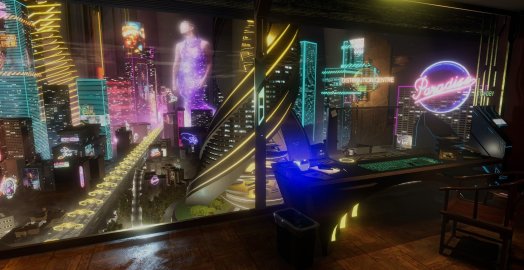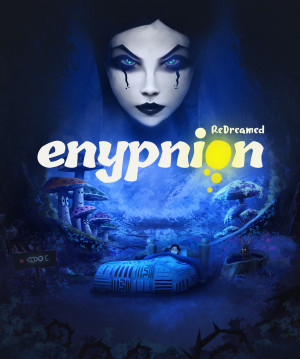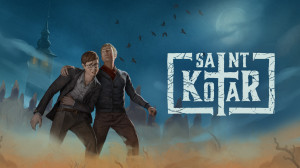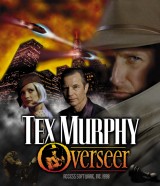Review for Keyword: A Spider’s Thread

I worked in a video store in the late ’90s and my manager was the only person who could get rid of customer late fees. One day a verbally abusive regular came into the store and I knew she had a late fee so high the computer system wouldn’t let her rent unless she paid it off. I was not in the mood for that confrontation, so in a panic I tried to wildly guess my manager’s 4-digit password. I nailed it on the second try. Bye bye late fees!
Keyword: A Spider’s Thread, the first offering from indie developer City From Naught, touts itself as a narrative thriller wherein you have to use your hacking skills (“as you would in real life”) to help save your teenaged daughter Sala, who is missing. While the stakes are much higher and the hacking here requires more than the blind luck I used at the video store (and is a lot more fun), it is precisely nothing at all like real life and most of the time just slows down the pace of the narrative.
The year is 2048, and the father of the missing high-school senior is Guo Chen. It’s been eighteen years since his wife died and his post-traumatic stress disorder remains in full force. He’s used therapy and medication to repress his memories, but the relationship with his daughter suffered as a result, and their last conversation before her disappearance ended bitterly. Guo is a private investigator in Toronto, but a city-wide lockdown due to a drug-fueled crime wave keeps Guo locked in his apartment, forcing him to search for Sala through internet leads and an impressive pair of binoculars that can focus in on tiny details inside buildings hundreds of yards away. Confoundingly, as evidenced by the scores of empty apartments and the busy city roads at two in the morning, this lockdown seems to apply to just Guo.
Played from a first-person perspective (with keyboard/mouse the only option), the game immediately demands suspension of disbelief. Despite this story taking place nearly three decades in the future and sporting advanced technology like delivery drones (dropping off anything your heart desires, from sushi to deadly weapons), everyone’s online passwords (including those of the local police) are birthdays, favorite animals, or other easily researched personal details. In this world there is no encryption; no real security; no extra requirements demanding numbers, capital letters, or special characters.
While I was content to buy into the premise anyway, Keyword frequently ignores its own rules. For example, the bedroom door of the protagonist’s daughter can only be opened with her handprint. To a parent this brings up only terrifying thoughts, but it’s at least the type of lock worthy of 2048 security. It’s bizarre, then, that hacking the missing girl’s e-mail and social media account is a comparative cakewalk, especially given that there seems to be more private information there than in her bedroom. It probably goes without saying that several puzzles are heavily contrived, but I’ll highlight one in particular. There is actually one local citizen that has two-factor authentication set up for his account, and wouldn’t you know it your window just happens to have a perfect view of this person’s computer, which has been conveniently left unattended with just the right screen showing.
The game’s most significant break with mimesis occurs in a handful of puzzles that require you to discover details that should already be known to Guo. In fact, the first requires you to figure out your own address. A few times you are asked to identify the location of certain buildings or streets in the city; even if Guo didn’t happen to know these off-hand, you’re required to deduce them through puzzle-solving rather than simply pulling up Google Street View on your own computer.
I begin with Keyword’s faults as this mirrors the order of my playing experience. Pretty much the whole game is spent attempting to gain access to other people’s files, so once I learned its internal logic and got the hang of using the binoculars, I began enjoying myself. Assisting is a near-perfect nested hint system that will slowly nudge you towards the answer to your current problem without ever handing it to you. Unfortunately there were a couple of times when the in-game hints were too vague and I had to search for the solutions elsewhere. Otherwise solving each puzzle is quite satisfying, even if you need a hint or two for those with multiple steps. And there are almost always two different puzzles to be working on at a given time, allowing you to take a break from a toughie. A notepad also has a permanent spot on the in-game computer, suggesting that note-taking will be necessary (and it is).
The further you progress, the faster the story unfolds as you uncover corruption, crimes, and your own repressed memories. Despite most of the game taking place on your computer and surveying Toronto with your binoculars, there are several intense scenes, some including time limits to fray the nerves. To hint at their nature would spoil some plot twists, but they provide welcome respite from the tedium that comes with being a prisoner in your own home. The default ending is a bit abrupt and unsatisfying, but a second, significantly more rewarding ending (which you can trigger at any point during play) requires some wild out-of-the-box thinking.
Interwoven with this world’s technology is Buddhist mythology, which plays a significant role in Guo’s life. While no knowledge of Buddhism is required, there is ample opportunity to learn about its major themes, including one section of the game that forces Guo to come face to face with a Deva. As Guo connects more with his faith, he grows as a person and becomes gradually more sympathetic as the protagonist.
Sadly, the game’s technical aspects dull the flame. Like Guo, the developers are from Toronto and have created a visually arresting futuristic landscape that serves as the tableau for Guo’s investigation. Through his enormous picture window you’ll see spiraling skyscrapers, holographic projections, bright neon lights, pagodas, a beautiful park system, and a sprawling freeway. But while the panoramic view of the city is gorgeous, details become basic and repetitive the closer you zoom in with the binoculars. This is understandable considering the hundreds—perhaps thousands—of apartments and offices you can peer into, though knowing that doesn’t make it any less banal. On Guo’s computer, the typeface has a futuristic quality but can be difficult to read at times. In one instance it is nearly impossible to discern the difference between a 5 and an 8, making you question if you’re on the wrong track or just typing in the wrong number.
There is also a dearth of background music. Given that you’re already confined to one room, the lack of accompaniment further keeps you in the doldrums. Beyond Guo’s footsteps and computer sounds, you’ll rarely hear anything. One point in the game’s favor is the voice acting. Guo occasionally verbalizes his thoughts in a non-expository way that amplifies the mood, but speech is appropriately limited given his isolation, and is often heard only in recordings. The game defaults to English voice-overs and subtitles, but also available are Chinese voices and eight subtitled languages.
This particular spider’s thread (a reference that oddly is given no explicit meaning in-game) has unfortunately caught several bugs. I didn’t encounter any that crashed the game or made it unwinnable, and most of them were just brief graphical issues. There is one puzzle, however, that requires investigating timestamps on various photographs, and at random times the dates on all the photos reset to 01-01-0001. While this can be remedied by restarting the in-game computer (or restarting the actual game), the puzzle is impossible to solve until you realize that it’s a glitch.
The game is recommended for mature audiences. While not overly graphic, it does touch on many adult themes, including violence and drug abuse; suicide also plays a significant role. Three to five hours is likely to be the average playtime, though this is a bit dependent on how willing you are to use the in-game hint system. For those patient and eager, trying to find the second ending can double your playtime (mostly from all the thinking you’ll be doing!).
Despite a number of faults that hold it back somewhat, I still recommend Keyword: A Spider’s Thread to those who enjoy light simulated hacking-style adventures. The puzzles are generally satisfying, and while the story won’t blow you away, it’s solidly paced and provides more than enough reason to keep typing and spying away. It could have used a lot more beta testing, but City From Naught has some really cool ideas here that I hope are put to even better use in their next project.




























